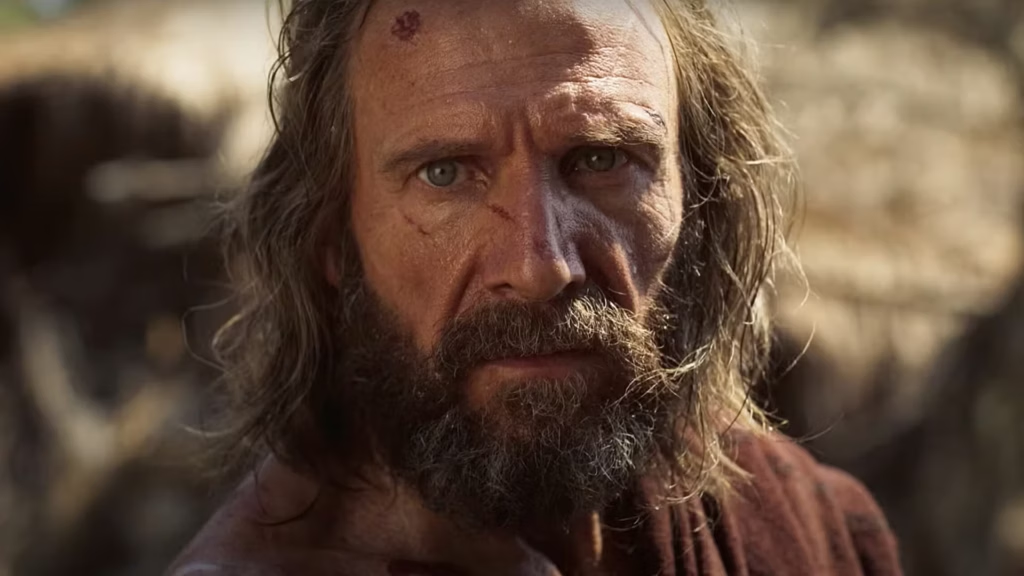A revisionist adaptation of the best part of Homer’s Odyssey

Everyone’s familiar with The Odyssey, or at least with some of its most famous chapters: Returning home from Troy, King Odysseus and his army are waylaid by encounters with a vengeful Cyclops, enchanting Sirens, the six-headed serpent Scylla, a massive whirlpool, and an isle of sacred cattle. With each encounter, their numbers dwindle until only the King remains.
But my favorite part of The Odyssey is a lesser-celebrated part of the Homeric epic, his return home. Osysseus’ journey is a mix of adventure and horrors, whereas his homecoming is melancholy, nostalgic, and operatic. Incidentally, these are the least mythological chapters, focused on an entirely human situation. I have similar feelings about this tale as I do Edmond Dantes’ return in The Count of Monte Cristo.

So it’s with considerable excitement that I watched Uberto Pasolini’s The Return, which adapts the bookending chapters of The Odyssey set on Odysseus’s home island of Ithaca, while reuniting Ralph Fiennes and Juliette Binoche (The English Patient, Wuthering Heights).
While Odysseus (Fiennes) has been away for many years to fight in the Trojan War and is generally presumed dead, his wife, the Queen Penelope (Binoche), holds out hope for his unlikely return – or at least, she refuses to move on. She’s essentially a prisoner in her own castle, as many opportunistic and unworthy suitors have taken residence in her halls to vie for her hand. To quell them, the queen promises to choose a husband once the shroud she is weaving is completed, but secretly undoes her loom each night.
Their son Telemachus, an infant when Odysseus departed, is now a grown man, bitter at his parents and resentful of the impudent suitors who feast at the King’s table and seek to usurp the throne.
It’s to this bleak setting of faded glory and rising menace that The Return‘s Odysseus washes up, naked and nearly dead, on the shores of Ithaca, rendered nearly unrecognizable after two decades of war and toil.
While The Return is an adaptation of the Homeric volumes, it’s not a direct one and seems to be a version of events set more or less in the real world without any magical realism or mythical elements. It’s hard to imagine this version of Odysseus fighting cyclopes or sea dragons – his homecoming was delayed not by battling gods and monsters, but by brokenness, shame, and ultimately fear.
There’s currently some Oscar buzz around Fiennes’ performance in Conclave – and rightly so – but I find his work here just as incredible and deserving. He’s astounding as the broken King, returning not in glory but humility. Weakened and unable to simply march into the castle to claim his mantle – a strategy which would most likely get him killed by the suitors who vastly outnumber him – he instead recovers in the house of a sympathetic peasant, maintaining his anonymity, and listening to the goings-on to try to identify his enemies and allies and plan his next move.
I love this story and I was wowed by this telling of it, a gritty and down-to-earth approach to one of the world’s oldest fantastic mythologies, weaving in practical considerations and sexual politics of the story, presented as if it were simply a true history.

Those familiar with the tale will know the significance of the climax involving Odysseus’ bow, and this sequence is handled quite beautifully.
I’ll also say, without elaboration, that there’s a specific scene involving a dog which is one of the best things I’ve seen in the cinema this year.

A/V Out



